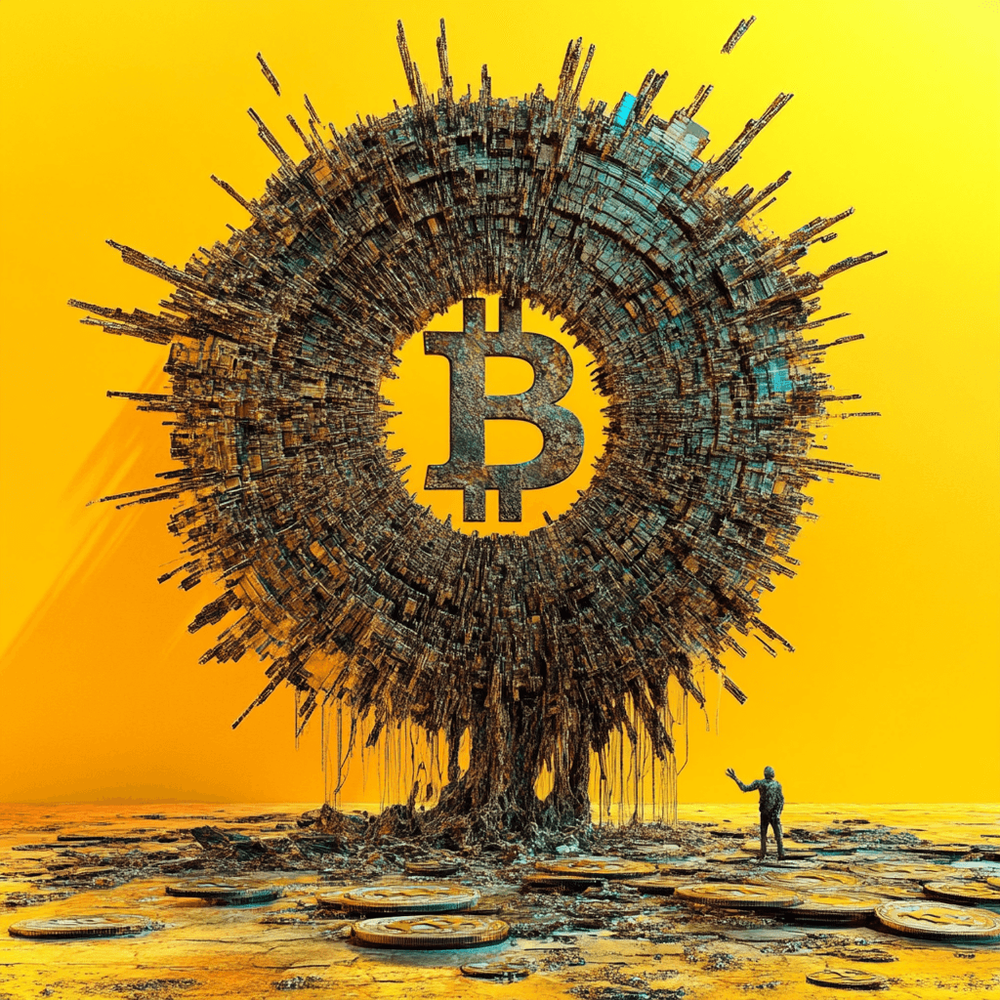The Challenge of Centralization and Bitcoin Promise
Centralization Is Stealing Your Rights: Why It Matters More Than You Think If you’ve been kicked off social media, had your bank account frozen, or seen your favorite app disappear from the App Store, you’re not alone. We’re living in a time where big tech companies and banks have more power than ever to decide who gets access and who doesn’t. It’s not just annoying — it’s a serious threat to your property rights and personal freedom. Let’s dive into why this is happening and what it means for you.
The Problem with Free Services: You’re Not the Customer
Think about all the free platforms you use: Instagram, Twitter, YouTube. You don’t pay a dime, right? But here’s the catch — because you’re not paying, you’re not really a customer. Instead, you’re the product. These companies make money by selling your attention to advertisers. So if they decide you’re no longer valuable or you’ve said something “out of line,” they can cut you off without a second thought. No Contract, No Rights: Since you’re not paying for the service, there’s no formal contract between you and the platform. They can delete your account anytime, and you have no legal claim because there was never a real transaction. Blurred Ownership: Sure, you created your social media account, but it’s hosted on their servers. If Twitter decides to ban you, your account is gone — and there’s nothing you can do about it. This is the dark side of centralization: these platforms control everything, while you’re left with no real ownership or recourse.
Why Centralized Systems Erode Your Property Rights
It’s not just social media. Centralization affects your financial life too. Think about your bank account — you don’t actually own your money in the same way you own cash in your wallet. Banks, payment processors like Visa, and government agencies like FinCEN all have the power to freeze your funds or block your transactions. It’s like having a bouncer at the door of your own house. Censorship and Freezing Accounts: Centralized financial systems can cut off your access to your own money if they don’t like what you’re doing. We’ve seen this happen to activists, independent media, and even small businesses. Inflation as Hidden Theft: When governments print more money, the value of your savings goes down. It’s a form of silent confiscation that erodes your wealth without you even realizing it. Centralization means that your digital assets — your social media accounts, your online data, and even your money — are only yours as long as the big companies in charge say they are.
The Bitcoin Alternative: True Ownership in a Digital World
Enter Bitcoin, the digital asset that flips this script. Unlike your social media account or your bank balance, Bitcoin is decentralized. It’s not controlled by any single company or government, and that’s what makes it revolutionary. A Non-Physical Bearer Asset: Bitcoin acts like a “bearer bond” in the digital age. If you hold the private keys, you own the Bitcoin — no one can take it from you unless they get those keys. It’s like having a Swiss bank account in your pocket, but better. Scarce and Secure: Bitcoin is the first truly scarce digital asset. There will only ever be 21 million Bitcoins, and the system is designed to be secure against attacks. It’s a form of property that central authorities can’t seize or censor. This is a big deal. In a world where your social media accounts and bank balances can vanish overnight, Bitcoin offers a level of true ownership that we haven’t seen before.
Why Centralization Is Failing Us
Let’s face it: centralized systems are breaking down. They were built for a different era, when control and authority were easier to manage. But today, they can’t keep up with the demands of a digital, global economy. Here’s why: Big Tech Monopolies: Companies like Google, Amazon, and Apple have become gatekeepers of the internet. They can decide which apps are allowed and which voices get heard, creating a digital chokehold. Government Overreach: Governments have more tools than ever to monitor and control financial transactions. From freezing accounts to censoring transactions, they can limit your access to your own property. Bitcoin and other decentralized technologies offer a way out. Instead of relying on centralized entities to grant you access, you become your own bank and control your own assets.
The Future: Freedom Through Decentralization
The internet was supposed to democratize information and empower people. Instead, it’s become a playground for big tech and centralized power. But decentralized technologies like Bitcoin are giving us a chance to rewrite the rules. Real Ownership: With Bitcoin, you own your assets directly. There’s no middleman who can take them away. Resilient Networks: Decentralized systems are harder to shut down because they don’t rely on a single point of control. It’s like trying to put out a wildfire — you can’t just flip a switch. A New Era of Digital Rights: We’re moving into a time where digital property rights will be as important as physical property rights. Bitcoin is leading the way, providing a framework for true ownership in a world where everything else feels temporary.
TL;DR Centralized systems like social media platforms and banks control your digital and financial life. They can censor, freeze, and take away your assets without warning because you don’t truly own them. Bitcoin offers a solution: a decentralized, secure form of property that you control. In a world where big tech and governments hold the keys, Bitcoin gives you the chance to hold your own. In short, we’re at a crossroads. One path leads to more centralization, control, and restrictions. The other leads to freedom, ownership, and resilience through decentralization. The choice is ours, but the clock is ticking.

Recent News
All Time High • Live
Have questions or want to collaborate? Reach us at: [email protected]










